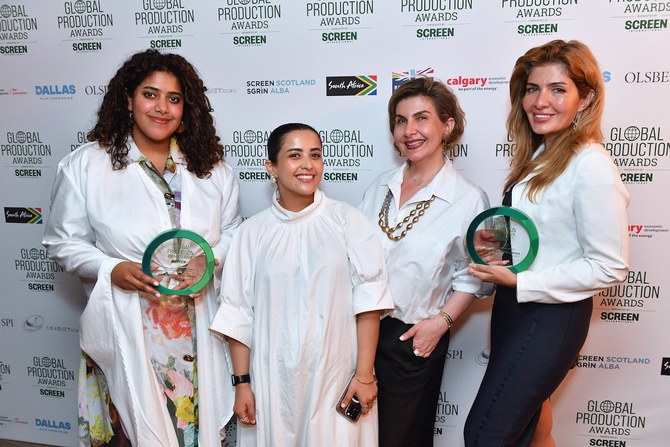DUBAI: The Royal Commission for AlUla’s film agency Film AlUla on Wednesday received the Emerging Location Award and Film Commission Award at the Global Production Awards held on the sidelines of the 77th Cannes Film Festival.
The award show recognizes efforts in producing and filming movies and shows. It highlights projects that set high standards in sustainability, diversity and local economic benefits from production activities.
Charlene Deleon-Jones, the executive director of Film AlUla, said in a statement: “Less than five years ago, Film AlUla was established to develop a vibrant film industry, while diversifying the local economy, providing opportunities for local filmmakers and fostering global collaboration.
“Since then, we have been dedicated to building the infrastructure, policies, and teams that will transform the lives of a generation of filmmakers and filmgoers alike,” she added.
Film AlUla this week hosted a screening of clips from short films by the first four winners of the AlUla Creates Film Programme, which supports Saudi female directors. The winners received mentoring to turn their ideas into festival-ready films.
On May 23, the film “Norah,” shot entirely on location in AlUla with an all-Saudi cast, will become the first Saudi feature to appear as part of the official selection at Cannes in the 77-year history of the festival.












